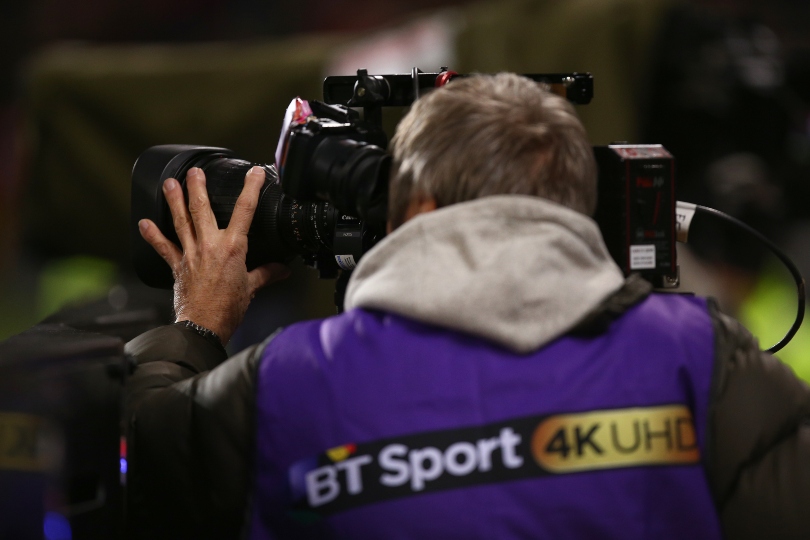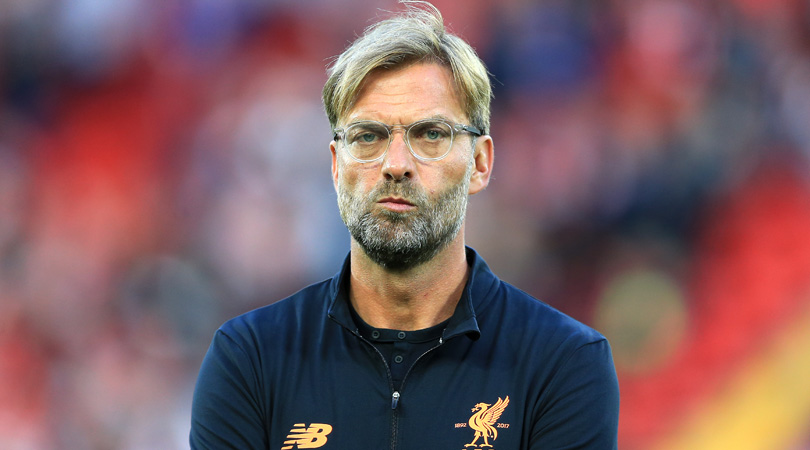Premier League managers may hate the Saturday lunchtime kick-off – but it's their own clubs they should be blaming
Jurgen Klopp and Ole Gunnar Solskjaer have led the charge against Saturday's early Premier League game, but it is merely the result of money-grabbing broadcast deals

There are lessons to be learned from 2020 and one of them is that 12.30pm on a Saturday is the worst time in the week. Few knew it, admittedly, before Ole Gunnar Solskjaer and Jurgen Klopp alerted the wider world to its horrors.
“Nearly a crime,” said the Liverpool manager, whose side kick off at 12.30 this weekend. “To set us up at 12.30 on Saturday is an absolute joke,” said his Manchester United counterpart after winning 3-1 in a 12.30 kick-off at Goodison Park.
BLACK FRIDAY What's in the sales today for football fans?
BUY NOW Over £50 off a 32" JVC Smart HD ready TV
Amid legitimate concerns about player workload and injuries, the added complications of a compressed fixture list caused by Covid-19 and the sadly all too familiar suggestion that someone, somewhere is conspiring against them for reasons no one can fully explain, not least because there aren’t any, lies a lack of understanding of the environment that Premier League clubs have created to boost their own bank balances.
The 12.30 kick-off is a product of the broadcasting deals the Premier League has struck, which make organising the weekend schedule tougher. While games are currently being broadcast at other times as supporters are not allowed in, such as 3pm on a Saturday, 7.15pm on a Sunday and 5.30pm on a Monday, that is a temporary measure and the division sold five weekend (and two midweek or Bank Holiday) packages of rights in its current deal.

Broadly, they work out at 12.30 and 5.30 on Saturdays, 2.00 and 4.30 on Sundays and a Monday (or occasionally Friday) evening game. Sky bought four of those packages. BT got one: 12.30 on a Saturday.
Get FourFourTwo Newsletter
The best features, fun and footballing quizzes, straight to your inbox every week.
In addition, Sky have the first pick of weekend games in any round and BT the second pick. Therefore, Sky will show Chelsea versus Tottenham this week, just as they plumped for Tottenham against Manchester City last weekend and City’s clash with Liverpool before the international break. BT’s second pick qualifies them for any game except those that cannot be staged on a Saturday: so when Tottenham, Arsenal and Leicester play Europa League games on a Thursday, they will not feature under 48 hours later.
Sometimes, the second ‘best’ choice of a round of fixtures is obvious: Everton against Manchester United in the week when Liverpool travelled to City. At others it might not be so clear – this weekend, when Brighton versus Liverpool is on BT, is a case in point – but when Tottenham, Arsenal and Leicester cannot feature on Saturday, that second pick is still likelier to involve one of Chelsea, Liverpool or the Manchester clubs.
And here the Premier League policy of having multiple broadcast partners – devised, of course, to up the bidding and raise more money – corners clubs into the 12.30 slot. Sky have long liked to show the standout fixture on a Sunday afternoon but, with the flexibility of multiple slots, can use their premier game on different days: Tottenham versus City was on a Saturday, whereas Chelsea against Spurs is a Sunday match. BT Sport cannot: they have one flagship slot on a weekend.
Now fast forward to next year. Instead of playing Fantasy League, play Fantasy TV Executive League and look at the fixture lists on the weekends after Europa League games. On February 20, Arsenal against Manchester City will presumably be the first pick, leaving the Merseyside derby or Manchester United against Newcastle at 12.30 on Saturday. The following week, Chelsea’s meeting with Manchester United stands out and, with Leicester against Arsenal requiring a Sunday slot, that might mean Liverpool’s trip to Sheffield United is at Klopp’s favourite time. March 13? Sky would probably take the North London derby, meaning the Saturday 12.30 could be Leeds against Chelsea, Manchester United versus West Ham or Liverpool’s visit to Wolves.
All of which could generate complaints, especially when the kick-offs of midweek Champions League games are known. But, like the PR disaster of pay-per-view, it is a situation that clubs have created with a money-grabbing approach.
A single broadcaster would be preferable, whether in terms of making it cheaper for fans and because Sky’s Premier League coverage is substantially better than BT’s (in this view, anyway), but it would also be easier to arrange the fixture list.
Instead, they sold the Saturday 12.30 package to BT who, for their £295 million a year (or £9.2 million per game), probably do not want a weekly date with Burnley. In football’s culture of complaining and permanent notion that everything is someone else’s fault, managers either ignore or do not understand the culpability of their clubs, whether owners, chairmen or chief executives. The Premier League and its broadcasters are convenient punchbags, but the Premier League is a member organisation of 20 clubs who benefit from a deal that makes them £8 billion over three years. And they pursued the policy that gave 12.30 at Saturday its strange importance.
ALSO READ...
BLACK FRIDAY FourFourTwo magazine subscription – 50% off
OFFERS Black Friday football deals: Watch Premier League for cheap with Sky Sports half-price offer
Richard Jolly also writes for the National, the Guardian, the Observer, the Straits Times, the Independent, Sporting Life, Football 365 and the Blizzard. He has written for the FourFourTwo website since 2018 and for the magazine in the 1990s and the 2020s, but not in between. He has covered 1500+ games and remembers a disturbing number of the 0-0 draws.

